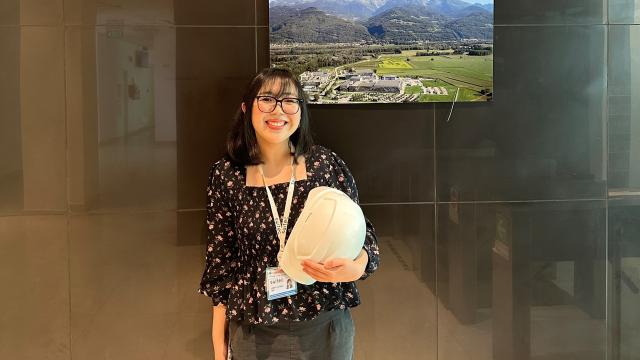As SIT celebrates the graduating Class of 2021 this month, we put the spotlight on a project spearheaded by a SITizen from the Offshore Engineering programme. Exemplifying the graduate’s pursuit for continual industry advancements, the project showcases his potential in making headway in innovation.

Floating production storage and offloading (FPSO) vessels typically station offshore for more than 20 years without returning to the mainland.
 Muhammad Syafiq bin Ibrahim, Bachelor of Engineering with Honours in Offshore Engineering, Class of 2021
Muhammad Syafiq bin Ibrahim, Bachelor of Engineering with Honours in Offshore Engineering, Class of 2021
Since young, Syafiq has always been intrigued by engineering feats that enable ships to sail and aircrafts to take flight. Driven by a passion to contribute to the development of the maritime industry, Syafiq embarked on the Offshore Engineering programme jointly offered by SIT and Newcastle University. The applied learning focus exposed him to real-world projects that were developed from concept to materialisation. In particular, he studied the breakwaters on floating production storage and offloading (FPSO) vessels, and how the structure of breakwaters and the behaviour of fluids on deck impact the lifespan of ships.
Water on vessel decks – traditionally referred to as “green water” – is characterised by the substantial amount of sea water flowing onto the decks of vessels. Offshore moored FPSOs often encounter “green water” incidents in critical environmental conditions, with violent waves often causing downtime due to the significant amount of “green water” that damages structures and equipment.
Such incidents affect the lifespan of FPSO vessels, which are permanently moored offshore for about 20 to 30 years, without docking back on the mainland for maintenance. Syafiq set out on a quest to investigate ways to increase the survivability of FPSOs and reduce downtime and costs in various stages:
- As part of his Year 3 assignment, the SITizen analysed different breakwater structures to fully understand how they could greatly reduce “green water” incidents on FPSOs.
- For his final-year Capstone project, he analysed the behaviour of “green water” flow on free-floating platforms to concretise his understanding of the occurrence. A data-driven study was conducted on floating platforms with various designs of breakwaters to investigate their effectiveness.
- During Syafiq’s Integrated Work Study Programme (IWSP) at Yinson Production Offshore Pte Ltd, he looked into conceptualising a simple product that covers the vulnerable area of the ship. He devised a practical design based on calculations of water velocity, pressure, flow, and mechanics of materials. He also ensured that the design used carbon steel and API 5L Grade B pipes, both of which are reliable, cost-effective and available in abundance for easy outsourcing and replacement.
- Now, as a full-time Structural Engineer at Yinson, Syafiq has successfully brought the concept to life. The breakwaters have been fabricated and welded onboard the FPSO project he was assigned to.

Syafiq’s proposed breakwater design using the principles of louvres and behavioural calculations of water, such as flow velocity and pressure. These breakwaters have replaced conventional railings on FPSOs to enable protection against the impact of “green water”.
“My work attachment at Yinson allowed me to learn and grow professionally. It was an eye-opening and enjoyable experience to be able to work with a team of professionals. I’m fortunate that I am able to realise my childhood dream as an engineer, and am now part of a dynamic and established company. I’m excited to contribute to future projects and hope to make an impact in the offshore field,” said Syafiq, who is currently involved in the preparation of structural engineering deliverables across several projects.
Image credits: Muhammad Syafiq bin Ibrahim, Yinson Production Offshore Pte Ltd
![[FA] SIT One SITizen Alumni Initiative_Web banner_1244px x 688px.jpg](/sites/default/files/2024-12/%5BFA%5D%20%20SIT%20One%20SITizen%20Alumni%20Initiative_Web%20banner_1244px%20x%20688px.jpg)


